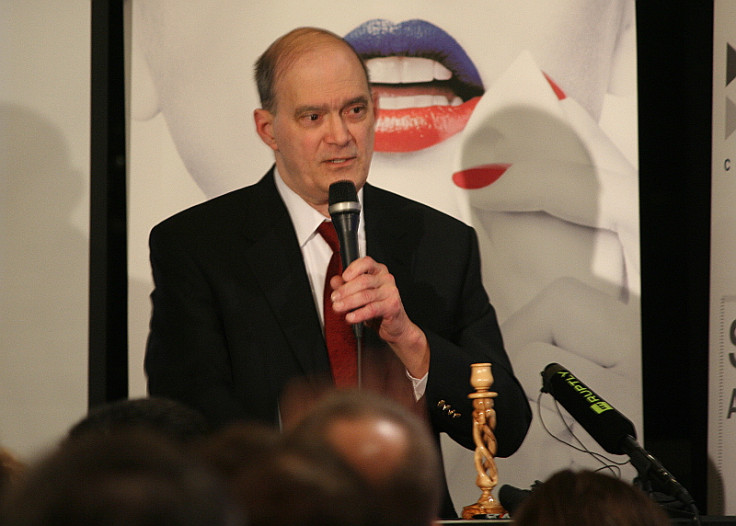NSA whistleblower William Binney wins 2015 Sam Adams award

William Binney, former technical director of the NSA turned whistleblower, last night received the Sam Adams Award for Integrity in Intelligence.
The ceremony in Berlin featured a powerful line-up of fellow whistleblowers and former intelligence officers, who honoured Binney for "shining light into the darkest of corners of secret government and corporate power".
Edward Snowden, the NSA whistleblower who won the Sam Adams Award in 2013, joined the event via video link from Moscow, to congratulate and thank Binney. "Without Bill Binney, there would be no Edward Snowden," he said.
Snowden spoke of the "civic duty to say something" that he felt when he saw unlawful surveillance programs in action. Programs that, as technical director of the NSA, Binney himself helped to build.
In accepting the award, Binney said that he resigned from the NSA back in 2001 after he realised the agency was "purposefully violating the Constitution" with its "bulk acquisition of data against US citizens... first against US citizens by the way, not foreigners".
Binney saw the danger: "That's what the Stasi did, the KGB did it - every totalitarian state down through history did that." While at the NSA, Binney recalled, he'd "worked the Soviet Union for almost 30 years, so it was easy for me to recognise".
This year's Sam Adams Award ceremony was held on the historic thoroughfare of Unter den Linden, in former East Berlin, just opposite the Soviet embassy. The significance of this was not lost on the participants.
The former NSA senior executive Thomas Drake, who won the Sam Adams Award in 2011, reflected: "I was a crypto linguist flying the East/West Germany border back in the Cold War. I never imagined the model of the Stasi, which was to know everything, would turn into the collect-it-all digital dragnet."
Drake spoke powerfully of the "horror of mass surveillance" and how, after 9/11, the US government decided to "unchain itself from the rule of law" in its desire to "collect everything". We are witnessing a further push for greater intelligence powers in the wake of the Paris attacks. As Drake says, we're once again hearing "the siren call for surveillance" from governments: "We have the answer, and that's more surveillance".
But is more surveillance the answer? In his acceptance speech, William Binney – arguably the world's foremost expert in mass surveillance – warned of what he called "data bulk failure", whereby intelligence failures and terror attacks are used as the excuse for "adding more and more bulk data" to a system that is already overloaded. Which only makes the whole process more difficult.
However, what such moves do achieve is to push forward what Binney called "the totalitarian process", to move ever closer to what Snowden has described as "turnkey tyranny".
And on a chill night in Berlin, the NSA whistleblower Thomas Drake warned, "Here we are, on what used to be the front lines of the cold war, facing the greatest threat in terms of what we've created electronically – which is the real prospect of turnkey tyranny of a digital kind".
© Copyright IBTimes 2025. All rights reserved.





















